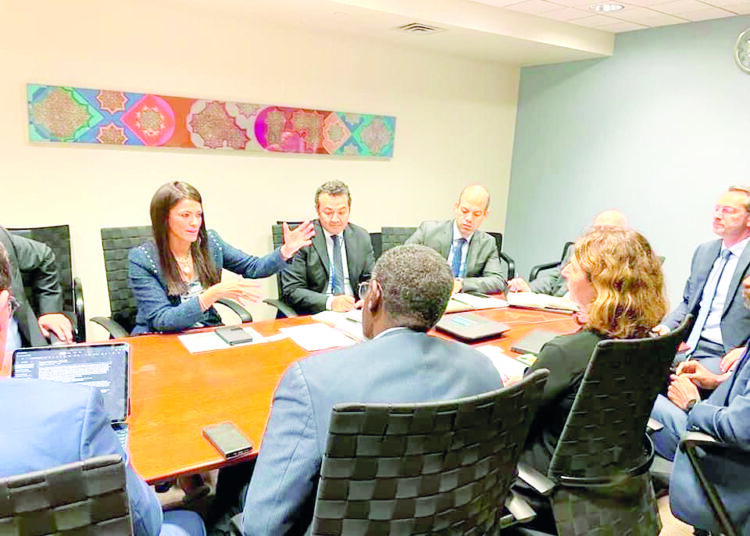Investment in climate adaptation is vital to resilience towards a green transition.
This statement by Egyptian Minister of International Co-operation and Governor of Egypt at the World Bank Group (WB) Rania el-Mashaat came in her speech to the event ‘Global Food Security Symposium: Scaling Innovation, Investments and Policy Reform Through Public-Private Collaboration and Action’, organised by Citibank in co-operation with George Washington University and Elliott School of International Affairs. This is part of the activities of the 2022 Annual Meetings of the International Monetary Fund (IMF) & the World Bank (WB) in Washington.
The minister also referred to government work on food security and innovative financing tools to for climate adaptation, while expanding smart and sustainable agricultural systems.
Since 2014, the Egyptian government has been integrating development efforts with climate action to achieve a transition towards a green economy and sustainable economic growth.
The symposium discussed the importance of food security and efforts to stimulate it in light of the threefold issue of food insecurity: the Russian-Ukrainian war, and the repercussions of the Covid-19 pandemic, and disruption of global supply chains.
El-Mashat referred to measures taken by the government in recent years to expand wheat and grain silage, to introduction ‘smart’ silos, broaden social protection programme to mitigate the impact of inflation.
Public-private partnerships and co-operation with international financial institutions is necessary for increasing smart agricultural systems, enhance farmers’ skills, and introduce renewable energy solutions, el-Mashaat said.
“It is important to note that food security on a global level has become more vulnerable to shocks and extreme changes, especially due to the war in Europe, the repercussions of the Covid-19 pandemic and climate change,” she said.
“This has altered world trade and caused major disruptions to the global supply chains and energy markets. As a result, food prices have surged 75per cent higher than pre-pandemic levels, threatening to drive more than 250 million people into extreme poverty worldwide,” the minister said.
The minister stressed the need to create opportunities despite challenges, by rearranging priorities and pushing food security as a top priority for countries, while also working to accelerate progress towards the Sustainable Development Goals (SDGs).
El-Mashaat said climate change represents a major obstacle to the long-term stability of the global food system, especially for lower-income countries, as it can potentially reduce yields of vital crops from 5-30 per cent between 2030 and 2050.
“Investment in climate adaptation is critical to put countries on a more resilient path towards a green transition,” she noted.
Developing and emerging economies need financial and technical support to enable them to design and implement adaptation projects that attract climate investment, she added.
El-Mashaat also spoke about Egypt’s presidency of COP27 and the commitment to move from pledges to implementation in order to secure the necessary climate finance for adaptation and mitigation projects, taking into account the priority of food and water security.






Discussion about this post